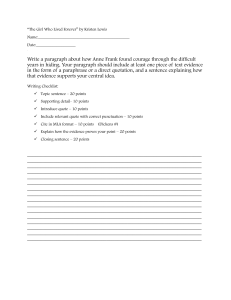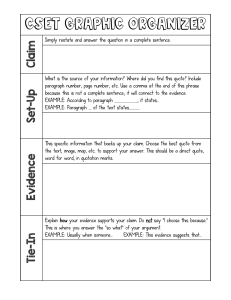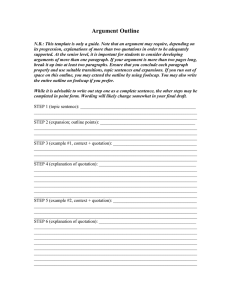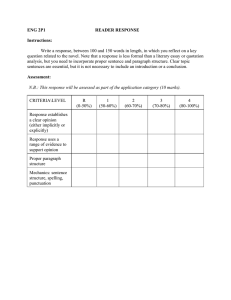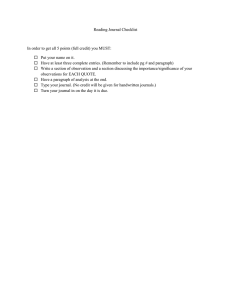Year 3 & 4 Writing Mechanics: Paragraph Structure
advertisement
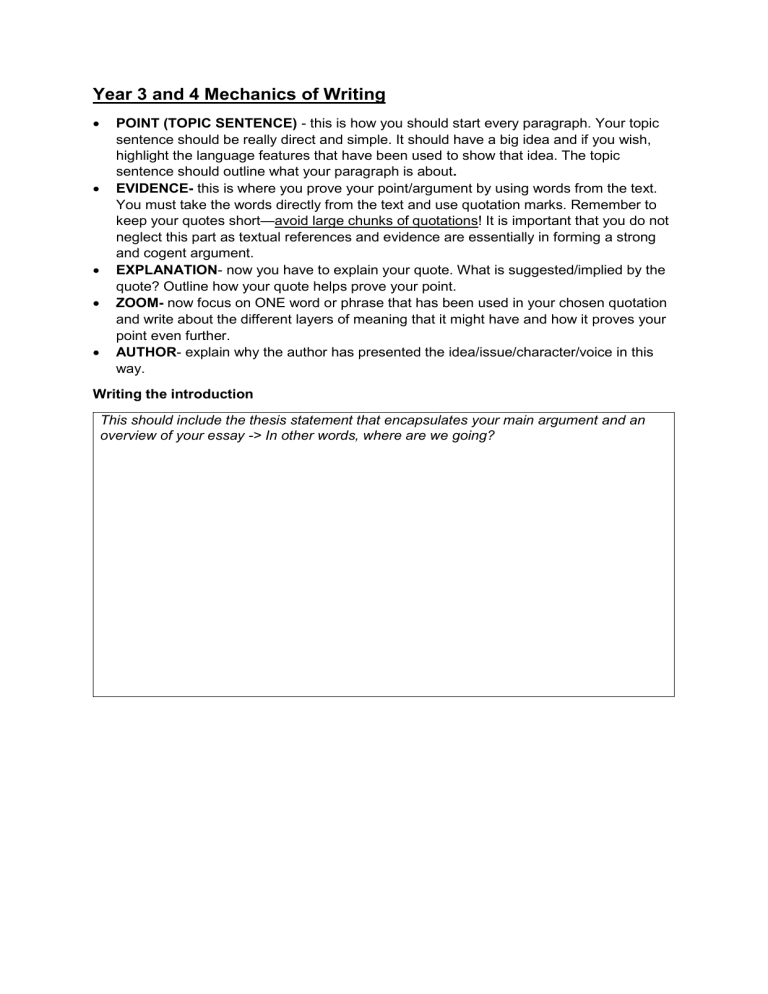
Year 3 and 4 Mechanics of Writing POINT (TOPIC SENTENCE) - this is how you should start every paragraph. Your topic sentence should be really direct and simple. It should have a big idea and if you wish, highlight the language features that have been used to show that idea. The topic sentence should outline what your paragraph is about. EVIDENCE- this is where you prove your point/argument by using words from the text. You must take the words directly from the text and use quotation marks. Remember to keep your quotes short—avoid large chunks of quotations! It is important that you do not neglect this part as textual references and evidence are essentially in forming a strong and cogent argument. EXPLANATION- now you have to explain your quote. What is suggested/implied by the quote? Outline how your quote helps prove your point. ZOOM- now focus on ONE word or phrase that has been used in your chosen quotation and write about the different layers of meaning that it might have and how it proves your point even further. AUTHOR- explain why the author has presented the idea/issue/character/voice in this way. Writing the introduction This should include the thesis statement that encapsulates your main argument and an overview of your essay -> In other words, where are we going? Planning the body paragraph POINT (Topic sentence, which should be a claim or an opinion of the writer) EVIDENCE (direct quotation(s) from the text) ELABORATION (what is suggested by the quotation? What does it mean?) ZOOM (focus on one aspect of that quote- a word/phrase/imagery/symbol etc) AUTHOR (why the author might be presenting the character/issue/idea in this way and the effect that it has on the reader) Write the sample body paragraph
